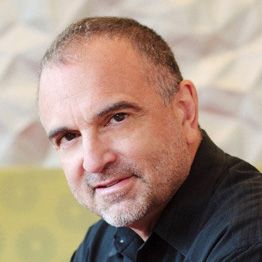Aflibercept Reverses Non-Prolific Diabetic Retinopathy Progression in Certain Patients
The anti-VEGF marketed as EYLEA has new phase 3 study results in its ongoing trial for NPDR consideration.

George D. Yancopoulos, MD, PhD
New topline results from a phase 3 trial have reported that aflibercept (Eylea) achieved significant improvements to disease severity in certain patients with non-proliferative diabetic retinopathy.
The results, from the PANORAMA trial, reported that 58% of patients to receive aflibercept injection over 24 weeks experienced an improvement of 2 steps or more on the Diabetic Retinopathy Severity Scale (DRSS) from baseline, versus just 6% of those to receive sham injection (P < 0.0001).
This is the first study to demonstrate disease progression reversal in patients with moderately severe to severe non-proliferative diabetic retinopathy (NPDR) without diabetic macular edema (DME), George D. Yancopoulos, MD, PhD, Regeneron president and chief executive officer, said.
The PANORAMA trial is an ongoing, double-masked, randomized 2-year study involving 402 patients with NPDR without DME that is testing the efficacy of aflibercept versus sham injection. It is comprised of 3 treatment arms: 2 aflibercept treatment groups given either 3 or 5 initial monthly doses, and a sham injection group. The trial will evaluate patients at every eighth week of dosing, or every 16-week dosing at 1 year.
Researchers are seeking 2 primary endpoints —proportion of patients who experience an improvement in DRSS score of at least 2 steps from baseline score, measured at 24 weeks and 52 weeks. Its key secondary endpoints include assessment of whether aflibercept prevents neovascular vision-threatening complications or progression to DME, impact on anatomic effects, visual acuity improvement, and safety. Some of these endpoints will be measured for up to 2 years.
In the 24-week analysis, researchers reported that treatment group patients received a mean 4.4 aflibercept injections during the period. The study span reported no new safety signals, and just 1 case of mild intraocular inflammation was reported in a treatment patient.
Eylea is currently approved by the US Food and Drug Administration (FDA) for patients with wet age-related macular degeneration (AMD), macular edema following retinal vein occlusion, DME, and diabetic retinopathy in patients with DME.
In a discussion with MD Magazine at the 21st Annual Meeting of the American Academy of Ophthalmology (AAO 2017) in November, Rahul Khurana noted the anti-vascular endothelial growth factor therapy was efficacious at just 12-week interval dosing for a majority of studied patients with wet AMD.
Khurana said the patients extended to 12-week interval dosing qualified with stable visual acuity and optical coherence tomography (OCT) perspective. That said, the “surprising and reassuring amount” of patients (54%) to report durability in 12-week aflibercept impressed him.
““There are some treatment extend studies that have come out in Japan — they’re showing there’s a good amount of patients that could go even longer,” Khurana said. “The main thing we’re trying to figure out is what’s the right dosage.”
Yancopoulos said patients on aflibercept in the trial will continue to be evaluated for DME or vision-threatening complication prevention, with 52-week results to be reported later this year. There is currently no full evaluation of aflibercept safety and efficacy for NPDR in patients without DME by any regulatory authority.
Regeneron anticipates PANORAMA results will be presented at future medical meetings, and will form the basis of their supplemental Biologics License Application (sBLA) to the FDA later this year.